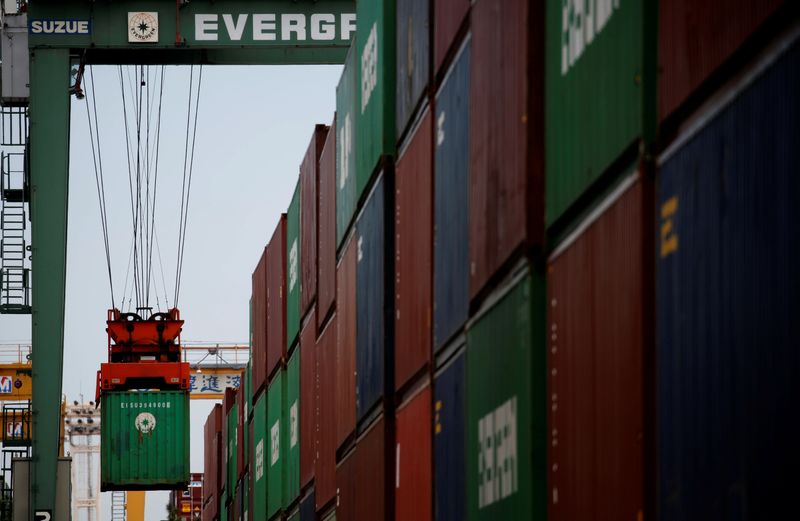By Leika Kihara and Tetsushi Kajimoto
TOKYO (Reuters) - Japanese manufacturers turned pessimistic for the first time in seven years in the three months to March, the central bank's "tankan" survey showed, as the coronavirus pandemic pushed the economy closer to recession.
Non-manufacturers' sentiment also worsened to levels not seen in seven years as travel bans, event cancellations and social distancing policies hurt consumption, the Bank of Japan's "tankan" quarterly survey showed on Wednesday, clouding an already darkening outlook for the economy.
The data underscores the challenge Prime Minister Shinzo Abe faces in stopping the pandemic wiping out the benefits his "Abenomics" stimulus policies have brought to the economy.
The headline index measuring big manufacturers' sentiment worsened to minus 8 in March from zero in December, the survey showed, compared with a median market forecast of minus 10.
It was the first time in seven years the big manufacturers' index turned negative.
Big non-manufacturers' sentiment index worsened to plus 8 from plus 20 in December, the survey showed, the worst reading in seven years.
Big firms expect to increase capital expenditure by 1.8% in the fiscal year that began in April, compared with a median estimate of a 1.1% decrease, the survey showed.
Both manufacturers and non-manufacturers expect business conditions to worsen further three months ahead, it showed.
The pandemic has hit an economy that had already suffered the fastest contraction in 5-1/2 years in the December quarter due to last year's sales tax hike and the U.S.-China trade war.
Many analysts expect the world's third-largest economy to contract in January-March and the current quarters, keeping pressure on policymakers to deploy huge stimulus programs.
Abe has pledged a huge spending package that would be bigger than one launched during the global financial crisis to cushion the outbreak's hit to growth.
The BOJ also stands ready to ramp up stimulus for the second straight month in April to combat the widening damage from the pandemic, sources have told Reuters.
The tankan survey will be among key data the BOJ will analyze in deciding policy at its April 27-28 rate review.

The tankan's sentiment indexes are derived by subtracting the number of respondents who say conditions are poor from those who say they are good. A negative reading means pessimists outnumber optimists.